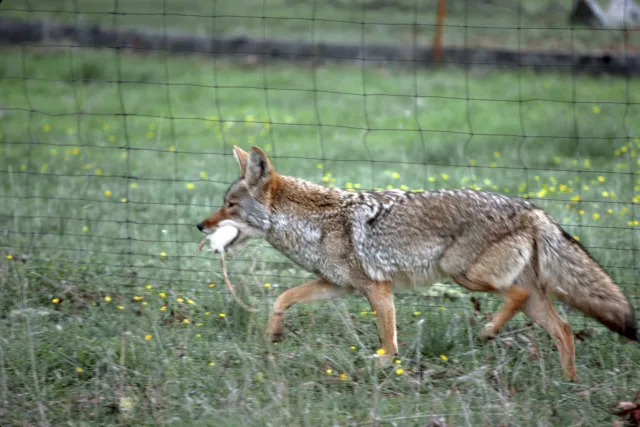Rodenticides: Further Restrictions in 2025
Toxic baits, or rodenticides, used to control rodents around the home and garden can harm nontarget animals, such as pets, birds, coyotes, and other wildlife. To reduce these negative impacts, California has passed several laws to limit what rodenticides can be used, how, and by who. Here’s what you need to know.
Currently, the majority of available rodenticide products can only be used by licensed professionals who must follow specific guidelines to reduce their impact on wild animals. And recent laws such as Assembly Bill 2552, known as the Poison-Free Wildlife Act, further limit the availability of toxic baits for residents looking to manage rats, mice, gophers, voles and ground squirrels in California.

What rodenticides can you use now?
The toxic bait options now available for residents to use are bromethalin, cholecalciferol, and zinc phosphide. It is important to read the label for these products before you buy them since some of these products may only be registered for use on certain species. For example, products containing bromethalin and cholecalciferol can only be used to control rats and mice.
For more on how these allowed toxic baits can be combined with non-chemical management options, see the updated information in the UC IPM Pest Notes: Ground Squirrels, Moles, Pocket Gophers, Rats, and Voles.
What rodenticides are restricted?
In general, residents and unlicensed professionals cannot use rodenticides with the following active ingredients:
Following these restrictions is critical to protect nontarget wildlife from harm. Use caution when purchasing rodenticides online to avoid accidentally buying restricted materials. If you have unused or partially used rodenticides containing these restricted active ingredients, take them to your local Household Hazardous Waste site for proper disposal.
